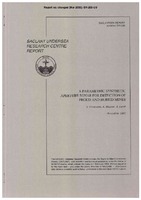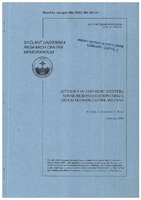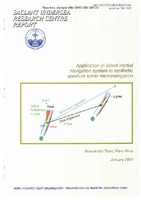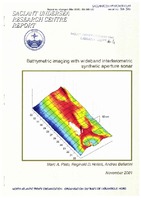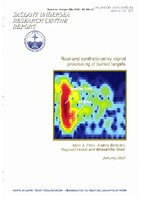Browsing Technical Reports by Subject "Synthetic Aperture Sonar (SAS)"
Now showing items 1-5 of 5
-
A parametric synthetic aperure sonar for detection of proud and buried mines
(NATO. SACLANTCEN, 1997/12)This paper describes an experimental comparison between a parametric sonar and a conventional sonar for the detection of small objects on and in, the sea bed. Two experiments were performed in France (GESMA site) in October ... -
Accuracy of synthetic aperture sonar micronavigation using a displaced phase centre antenna
(NATO. SACLANTCEN, 1999/02)This work evaluates the accuracy of multi-element synthetic aperture sonar (SAS) micronavigation based on the concept of displaced phase centre antenna (DPCA). The Cramér-Rao lower bound (CRLB) for the joint estimation of ... -
Application of aided inertial navigation system to synthetic aperture sonar micronavigation
(NATO. SACLANTCEN, 2001/01)In order to improve short-term navigational accuracy, critical to successful SAS processing, a highquality Inertial Navigation System (INS) is investigated, which consists of an inertial measurement unit (IMU) and a strapdown ... -
Bathymetric imaging with wideband interferometric synthetic aperture sonar
(NATO. SACLANTCEN, 2001/11)A new approach to interferometric sonar is presented, based on time delay estimation using shortterm correlation of the seafloor backscatter. It is most suited to signals with large relative bandwidths and long interferometric ... -
Real-and synthetic-array signal processing of buried targets
(NATO. SACLANTCEN, 2002/01)Results from two field experiments aimed at investigating the detection and classification of buried targets are presented. In both experiments a 2-16 kHz parametric source was used. In the first experiment the source was ...
